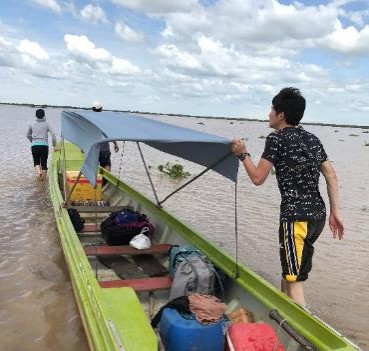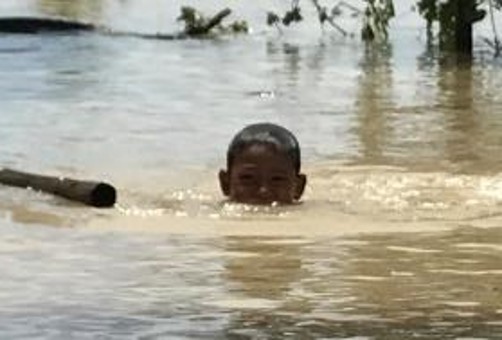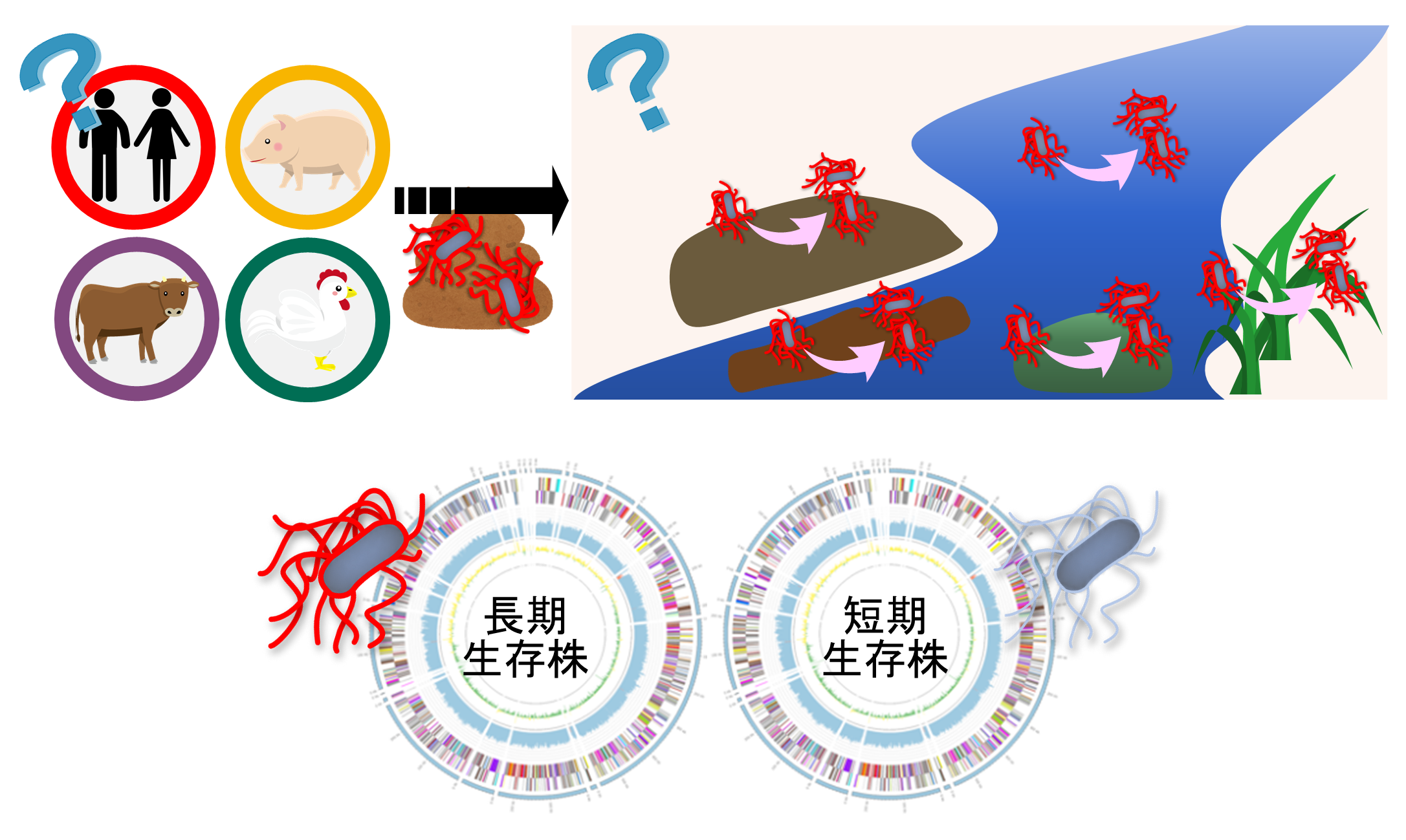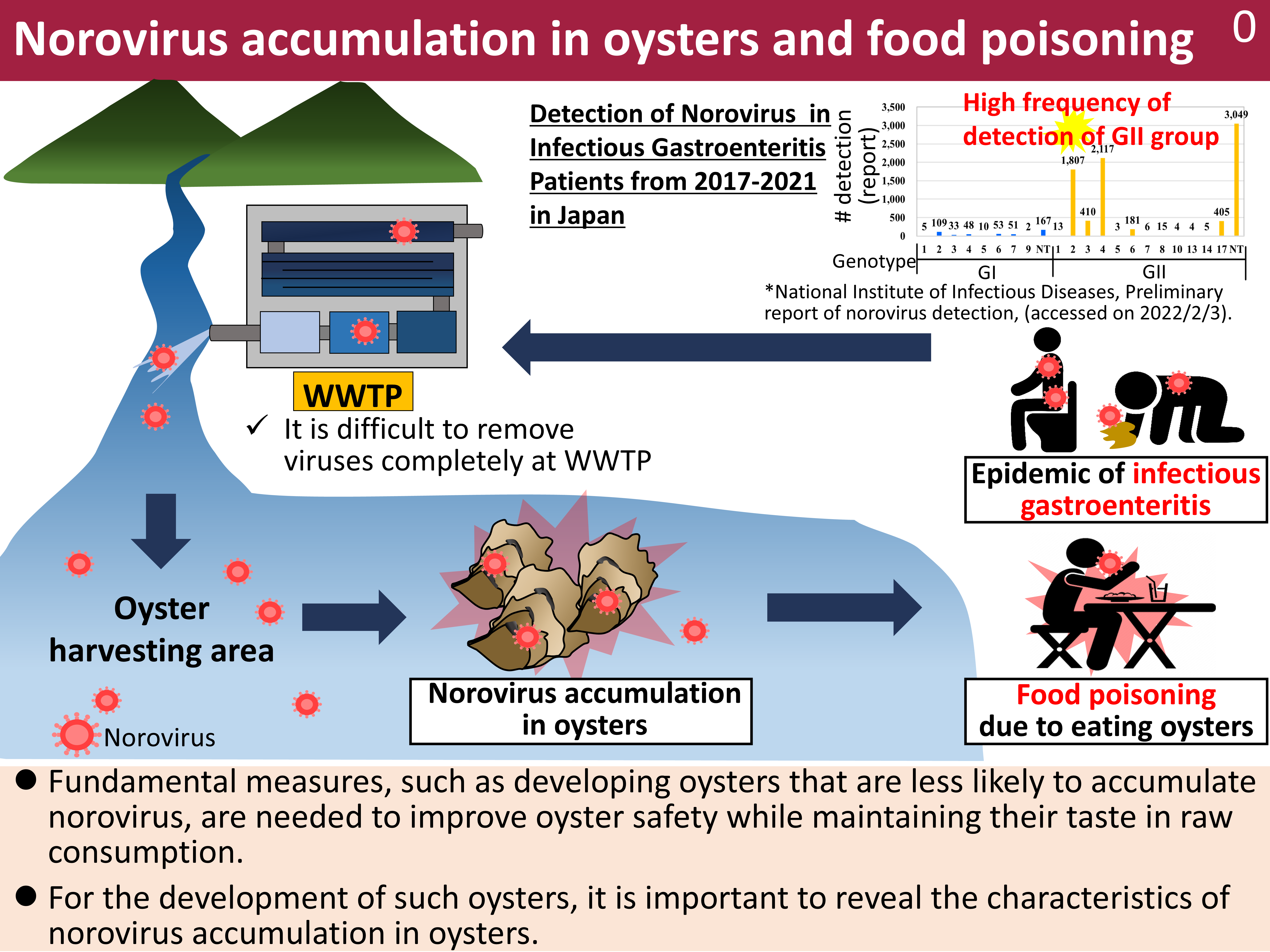Current Research Topics
Field survey of pathogenic bacteria, modeling of their survival and transport, and assessment of health risk in water environments
●Field survey of pathogenic bacteria

Bacteria derived from feces may be present in water environments and can cause human diseases. This study investigates the spread of these bacteria in the water environments.
■References
Yoneda et al., Environmental Pollution (2022).
●Development of models which can simulate the survival and transportation of pathogenic bacteria
To estimate the faecal contamination of water environments, we are developing models that can simulate the survival and advection-diffusion of bacteria in water environments, using mathematical models and machine learning methods. This research also conducts laboratory experiments to obtain information necessary for model development (e.g., survival of E. coli in water).
■References
Yoneda et al., Environmental Pollution (2024).
Yoneda et al., Microorganisms (2024).
●Assessment of health risks associated with the use of water contaminated with pathogenic bacteria

We are also working to quantitatively assess the health risks to humans associated with the use of contaminated water for daily living, using models we have developed that can simulate the survival and advection-diffusion of pathogenic bacteria.
■References
Preparing to submit a paper for publication.
Study on the survival of Escherichia coli

Escherichia coli is widely used as an indicator of faecal contamination in environmental waters, as its detection indicates the possible presence of pathogens originating from human and animal faeces, and it cannot survive outside the bodies of warm-blooded animals for a long time. However, previous studies have reported that E. coliEscherichia coli can survive and grow for long periods in water environments, and what characteristics these strains have.
■References
Preparing to submit a paper for publication.

